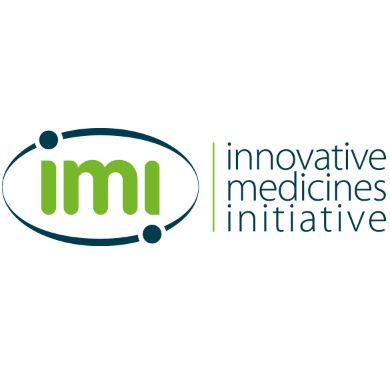
Support and coordination action for the projects of the Neurodegeneration area of the Innovative Medicines Initiative - IMI2-2017-13-05
Deadline: Sep 6, 2018
CALL EXPIRED
CALL EXPIRED
Entrepreneurship and SMEs
Health Care
E-Health
Horizon Europe
Research
Mental health
Specific Challenge:
Effective and efficient collaboration and coordination among the IMI portfolio of projects in the area of Neurodegeneration and related national, European and global initiatives is a key success factor for the important public-private investment to achieve its full impact, as also highlighted in a recent meeting hosted in Brussels by the IMI2 JU.
It also is evident that projects share several areas of common interest (e.g. modelling and simulation, imaging) and have developed best practices that would be very useful for other ongoing and upcoming initiatives, but due to the silo-like structure of the individual initiatives, the opportunity for real and effective cross fertilisation is limited and based on the “good will” of enthusiastic individuals. The portfolio of IMI projects has grown significantly and it is diverse in scope and focus, making the need for a more structural and tailor-made support structure mandatory.
Projects would also benefit from support (including access to learnings from other projects) towards the submission of results for regulatory and/or health-technology assessment (HTA) to ensure that important results can timely impact regulatory practice and the health care system. Often the data to support a regulatory/HTA submission are only fully available in the very final phase of the projects or even after their official end which may hamper their submission and subsequent follow up.
A significant challenge in collaboration is the burden required to develop agreements and good practices for sharing and re-use of data, biological tools (e.g. cell lines) and other materials, activities that are normally either not or only minimally resourced under individual initiatives and can be labour intensive and require expertise (e.g. legal, ethical) not always readily available for each project.
All projects face the challenge of sustainability of their results, and the lack of a source of advice and support in finding/choosing relevant solutions beyond the project lifetime.
There is therefore a clear need for support to ensure that collaboration and coordination become intentional and structural to the portfolio of projects in the IMI strategic area of neurodegeneration, by providing the necessary resources and framework.
Last but not least there would be a very high value in having a framework to facilitate collaboration and coordination of the many initiatives focussed on neurodegeneration, in and beyond IMI, and to develop some metrics to show their value in advancing research and remove bottlenecks toward the delivery of innovative treatments to patients.
Scope:
The overall scope of the coordination and support action is to provide the necessary overall framework and resources to achieve effective and efficient coordination and collaboration among the ongoing and future projects in the IMI strategic area of neurodegeneration. This will include:
- Develop a framework to coordinate and support the operational alignment of the IMI Neurodegeneration research portfolio, including a process to ensure that projects make appropriate use and can access existing infrastructures;
- Provide expert advice and other support to facilitate sharing and access of data, biological tools and other materials among projects;
- Provide expert advice and support in preparing for regulatory and/or HTAs interactions (e.g. legal support, access to relevant expertise, funding to pay submission fees) to ensure that appropriate regulatory input is provided when most valuable and also beyond the timeframe of a project;
- Establish and manage workshops designed to share common approaches/best practice across IMI projects and beyond;
- Develop a framework to coordinate and efficiently support the operational alignment of the IMI led actions with other relevant partnerships and initiatives at national, European and global level
- Create a platform to enable the mapping of partnerships and collaborative efforts that have supported over the past years research in Alzheimer’s disease to capture their contributions and identify the remaining gaps and develop metrics and benchmarks to measure value, including socio-economic impact;
- Develop outreach and engagement actions with other international/national/regional initiatives including patient organizations to promote and increase the value of trans-national and international research collaborations;
- Communicate and disseminate on joint activities and initiatives in the field of neurodegenerative diseases;
- Seek alignment and coordination on issues of common interest such as Ethical, Legal and Social Implications of clinical neurodegenerative disease (especially Alzheimer’s disease) research, where several learnings are already available but disperse.
Expected Impact:
The expected impact would be:
- An enhanced impact of the individual projects by creating structural synergy and collaboration;
- An enhanced visibility of the significant public and private investment of IMI in the area of Neurodegeneration; To ensure the results of IMI projects are developed optimally for the benefit of patients and the health systems including strategies for sustainability and uptake;
- An optimization of the impact of IMI projects’ activities in neurodegeneration toward the achievement of the IMI2 Council Regulation objectives
- An analysis of the scientific results and achievements delivered by the various partnerships in neurodegeneration so far, and an understanding of their translation into more efficient and faster development of new medical products in this area and of critical factors for a successful translation;
- An overview and a framework to inform future collaborative research globally and facilitate the translation to innovative treatments for patients.
SMEs can be of great benefit to IMI projects and, inter-alia strengthen the competitiveness and industrial leadership of Europe. Their involvement might offer a complementary perspective to industry and the academia, and help deliver the long-term impact of the project. For these reasons, applicants should consider engaging SMEs throughout the proposal.
Public link: Only for registered users
 Innovative Medicines Initiative (IMI)
Innovative Medicines Initiative (IMI)


Please Log In to See This Section